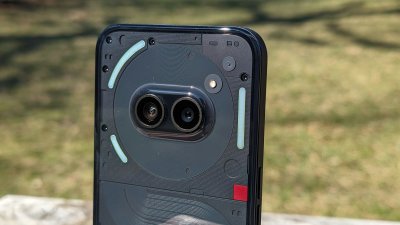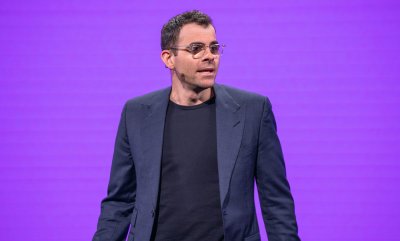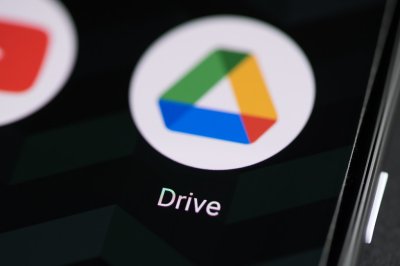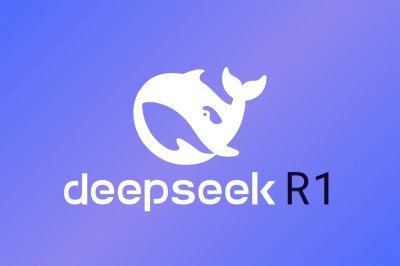Nothing Raises $200 Million to Launch First AI-Native Devices in 2026, Signaling a Bold New Tech Era
@devadigax16 Sep 2025

London-based consumer tech startup Nothing has secured $200 million in funding at a $1.3 billion valuation to pioneer what CEO Carl Pei calls "AI-native devices," marking a strategic departure from its earlier focus on stylish Android smartphones. This significant capital injection aims to propel the company toward launching the first generation of devices running on an entirely new operating system designed specifically for an AI-first world, slated for release in 2026.
The term "AI-native devices" encapsulates Nothing's ambitious vision to create hardware and software that are fundamentally built around artificial intelligence, rather than merely integrating AI features into existing platforms. Unlike conventional devices that run on Android or iOS with added AI functionalities, Nothing intends to engineer an operating system that is "significantly different from the ones today." This move underscores a profound shift in user interaction paradigms, where the AI component shapes the device's core capabilities and user experience from the ground up.
While specific details about the new AI operating system remain scarce, it is unclear whether Nothing's AI OS will stem from a modified Android base like their current Nothing OS or represent a completely novel platform. This architectural choice is critical, as it will influence app compatibility, developer engagement, and overall ecosystem adoption—challenges that have historically hindered newcomers attempting to rival Apple's iOS and Google's Android on a software level.
Interestingly, Nothing's CEO Carl Pei hinted that the first AI-native device will not be a traditional smartphone. This suggests the startup may be exploring untapped AI-driven hardware categories that could range from wearables and ambient computing devices to humanoid robotics or smart home technologies. Such a move positions Nothing to differentiate itself in a crowded market where tech giants and startups alike are aggressively investing in AI innovation but have so far produced only incremental hardware improvements.
The AI hardware market is notably difficult to penetrate, evidenced by the struggles of companies like Humane with their AI Pin and Rabbit with the R1, and even established players like Apple, whose AI integration largely focuses on improving voice assistants rather than redefining device architecture. Nothing’s competitive advantage lies in its existing brand recognition in the premium Android smartphone space and its expertise in "owning the last-mile distribution point," according to Pei. This refers to the company's ability to deliver devices efficiently to consumers and gather contextual user data, which is essential for personalizing AI experiences.
Despite its smaller size compared to tech giants pouring billions into AI experiments, Nothing aims to leverage its agility and focus to innovate faster. The challenge will be significant: building an AI-native operating system and hardware ecosystem from scratch within roughly 18 months, from concept announcement to consumer launch, is an aggressive timeline.
In summary, Nothing’s new funding round and strategic pivot to AI-native devices highlight a trend toward rethinking technology at the intersection of hardware and artificial intelligence. By investing in a custom AI-first operating system and branching out from smartphones to novel device types, Nothing is preparing to compete in what may become the next major frontier in consumer electronics innovation.
This bold vision reflects broader industry movements toward deeper AI integration, moving beyond software add-ons toward hardware and operating systems designed for seamless, intelligent interaction. The coming year will be crucial to watch how Nothing translates this vision into tangible products and whether AI-native devices can capture the consumer imagination beyond today's AI hype.
The term "AI-native devices" encapsulates Nothing's ambitious vision to create hardware and software that are fundamentally built around artificial intelligence, rather than merely integrating AI features into existing platforms. Unlike conventional devices that run on Android or iOS with added AI functionalities, Nothing intends to engineer an operating system that is "significantly different from the ones today." This move underscores a profound shift in user interaction paradigms, where the AI component shapes the device's core capabilities and user experience from the ground up.
While specific details about the new AI operating system remain scarce, it is unclear whether Nothing's AI OS will stem from a modified Android base like their current Nothing OS or represent a completely novel platform. This architectural choice is critical, as it will influence app compatibility, developer engagement, and overall ecosystem adoption—challenges that have historically hindered newcomers attempting to rival Apple's iOS and Google's Android on a software level.
Interestingly, Nothing's CEO Carl Pei hinted that the first AI-native device will not be a traditional smartphone. This suggests the startup may be exploring untapped AI-driven hardware categories that could range from wearables and ambient computing devices to humanoid robotics or smart home technologies. Such a move positions Nothing to differentiate itself in a crowded market where tech giants and startups alike are aggressively investing in AI innovation but have so far produced only incremental hardware improvements.
The AI hardware market is notably difficult to penetrate, evidenced by the struggles of companies like Humane with their AI Pin and Rabbit with the R1, and even established players like Apple, whose AI integration largely focuses on improving voice assistants rather than redefining device architecture. Nothing’s competitive advantage lies in its existing brand recognition in the premium Android smartphone space and its expertise in "owning the last-mile distribution point," according to Pei. This refers to the company's ability to deliver devices efficiently to consumers and gather contextual user data, which is essential for personalizing AI experiences.
Despite its smaller size compared to tech giants pouring billions into AI experiments, Nothing aims to leverage its agility and focus to innovate faster. The challenge will be significant: building an AI-native operating system and hardware ecosystem from scratch within roughly 18 months, from concept announcement to consumer launch, is an aggressive timeline.
In summary, Nothing’s new funding round and strategic pivot to AI-native devices highlight a trend toward rethinking technology at the intersection of hardware and artificial intelligence. By investing in a custom AI-first operating system and branching out from smartphones to novel device types, Nothing is preparing to compete in what may become the next major frontier in consumer electronics innovation.
This bold vision reflects broader industry movements toward deeper AI integration, moving beyond software add-ons toward hardware and operating systems designed for seamless, intelligent interaction. The coming year will be crucial to watch how Nothing translates this vision into tangible products and whether AI-native devices can capture the consumer imagination beyond today's AI hype.
Comments
Related News

Beyond the Mic: Instagram Denies Eavesdropping, But AI's Predictive Power Redefines Digital Privacy
@devadigax | 01 Oct 2025
@devadigax | 01 Oct 2025

Microsoft 365 Premium Redefines AI Productivity, Bundling Copilot to Rival ChatGPT Plus Pricing
@devadigax | 01 Oct 2025
@devadigax | 01 Oct 2025

Wikimedia's Grand Vision: Unlocking Its Vast Data Universe for Smarter Discovery by Humans and AI
@devadigax | 30 Sep 2025
@devadigax | 30 Sep 2025

Google Drive Fortifies Defenses with New AI-Powered Ransomware Detection
@devadigax | 29 Sep 2025
@devadigax | 29 Sep 2025

The DeepSeek Phenomenon: Unpacking the Viral AI Chatbot from a Leading Chinese Lab
@devadigax | 29 Sep 2025
@devadigax | 29 Sep 2025
 AI Tool Buzz
AI Tool Buzz